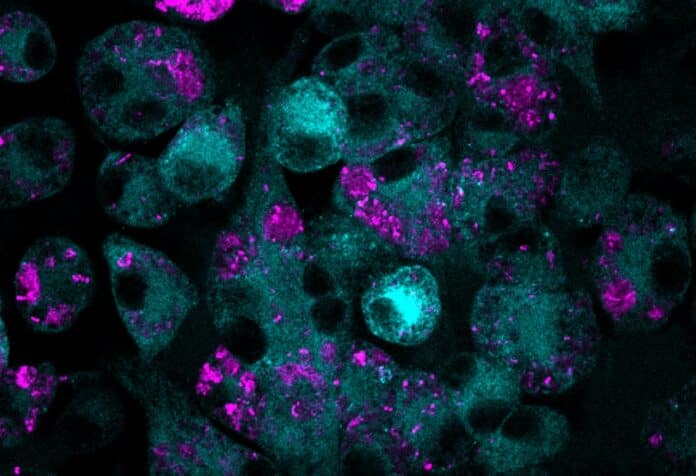Antibiotic resistance is a major worldwide health problem, killing 4.95 million people in 2019, and it is expected to kill 10 million people annually by 2050. Antimicrobials that overcome existing resistance mechanisms, as well as host-directed adjuvant treatments, are emerging as key therapy options for bacterial infections.
The most often isolated bacterial species from wounds are Enterococcus faecalis, Staphylococcus aureus, and Pseudomonas, all of which have low-level intrinsic resistance to penicillin, ampicillin, and cephalosporins.
Researchers have created a novel combination therapy that combines the anticancer drug mitoxantrone (MTX) with the antibiotic vancomycin to treat bacteria resistant to vancomycin, also known as vancomycin-resistant Enterococcus faecalis or VRE. The therapy targets both VRE and the host, boosting the host immune system to eliminate bacterial infections more effectively and accelerate wound healing.
Scientists from the Antimicrobial Resistance (AMR) interdisciplinary research group at Singapore-MIT Alliance for Research and Technology (SMART), MIT’s research enterprise in Singapore, led the research in collaboration with Singapore Centre for Environmental Life Sciences Engineering, Nanyang Technological University, MIT, and the University of Geneva.
Due to its growing antibiotic resistance, VRE is a “hard-to-kill” bacterium that can cause serious infections, such as bloodstream, urinary tract, and wound infections linked to catheters or surgical operations.
VRE infections have been difficult to treat because the bacteria are resistant to vancomycin, an antibiotic commonly used to treat endocarditis, skin, stomach, and intestine infections caused by Gram-positive bacteria. Other commonly used antibiotics.4.95 million people died from an infection linked to or attributable to antimicrobial resistance in 2019 alone, making antimicrobial resistance a severe global health concern.
Suppose immediate and coordinated action is not done to avert a potential drug-resistance crisis. In that case, the Asia-Pacific region will account for 47 percent of AMR-related deaths worldwide by 2050. Antimicrobials that can overcome resistance mechanisms and host-directed therapies that improve the innate human immune system to battle bacterial infections are being developed as new and innovative approaches to treating bacterial infections.
The researchers investigated MTX’s effectiveness and antibacterial activity against VRE in vitro and in vivo. When combined with vancomycin, MTX was proven to inhibit VRE growth more effectively. A new study found that MTX promoted wound healing by increasing macrophages‘ ability to fight off VRE infections and recruiting more immune cells to the site of infection.
Jianzhu Chen, a professor of biology at MIT, and Guangan Hu, a visiting professor at the Koch Institute for Integrative Cancer Research, are co-authors on a paper about the research.
The AMR interdisciplinary research group addresses the rising problem of antibiotic resistance through translational research and entrepreneurship. They intend to attack AMR head-on by creating numerous cutting-edge and disruptive methods to recognize, address, and treat drug-resistant microbial illnesses.
They will use the talent and convergent technologies available in Singapore and MIT. Their mission is to deliver innovative, comprehensive solutions for Singapore and the entire world through scientific solid and clinical cooperation.
Journal Reference:
- Ronni A. G. da Silva,Jun Jie Wong, etal. Mitoxantrone targets both host and bacteria to overcome vancomycin resistance in Enterococcus faecalis. Science Advances. 10.1126/sciadv.add9280
